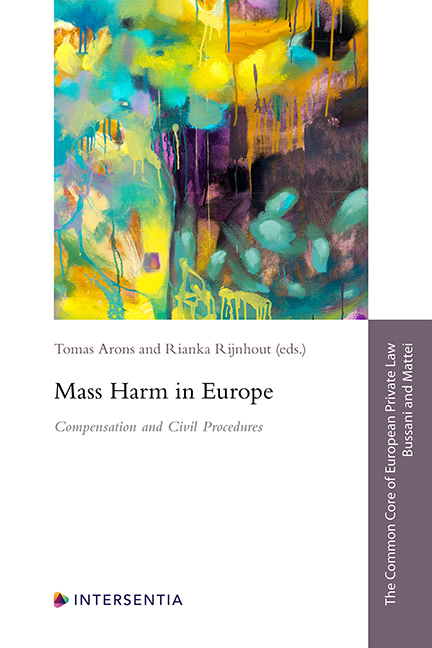Case 12: Climate Change
Published online by Cambridge University Press: 03 April 2024
Summary
CASE
A government meets the EU target of 20% reduction of greenhouse gases before the end of 2025 compared to the emission level in 1990. However, it has been stated in scientific research that the minimum reduction should be 25% compared to the 1990 level in order to have a 50–66% chance of staying below a 2°C increase in global temperatures by 2100 compared to the average temperature in 1800. Scientific research showed that this 2°C maximum increase is necessary to prevent a climate crisis; however, more recent scientific research shows that the preventions of a climate crisis requires a maximum temperature rise of only 1.5°C, which thus reduces the carbon budget that remains in order to prevent a climate crisis in the future.
A group of inhabitants go to court and ask for an injunction or court order requiring the government to reduce its emission of greenhouse gases by 25% at the end of 2025 compared to its emission level in 1990. The motivation behind this court order is the real threat of the violation of positive obligations by the state/government under Article 2 and/or 8 of the European Convention on Human Rights and/or that the due standard of care will be breached. Would the application succeed ?
DISCUSSIONS
AUSTRIA
Matthias Dangl and Georg E Kodek
I. Operative Rules
Under Austrian law, no injunctive relief would be available. The most important reason is that the relevant international conventions and EU goals are not selfexecuting and/or do not provide sufficiently identifiable enforceable standards. There is a Climate Protection Law (Klimaschutzgesetz), but this in essence only programmatically refers to future negotiations.
Legal Formants
The connection between climate change and human rights is too slim to warrant enforceable rights to specific measures. In the absence of sufficiently identifiable standards, the question of which measures have to be taken to stop the climate change is not justiciable. Certainly, it is not justiciable in private law, otherwise, extreme consequences would result. As such, tourists could be sued for causing pollution by ‘unnecessary travels’
- Type
- Chapter
- Information
- Mass Harm in EuropeCompensation and Civil Procedures, pp. 441 - 466Publisher: IntersentiaPrint publication year: 2023



